Posted on October 18, 2008 by The Orwell Prize -
Justin Webb is one of the presenters of the Today programme on BBC Radio 4. He joined the BBC as a graduate trainee in 1984 working in Northern Ireland for BBC Radio Ulster based in Belfast, before becoming a reporter on the Today programme. After leaving Today, he worked as a foreign affairs correspondent based in London covering news around the world. He then presented the BBC news – moving from Breakfast to the Six O’Clock News – during which time he interviewed prime ministers John Major and Tony Blair. There then followed three years working as the BBC’s Europe correspondent based in Brussels before being posted to Washington as the chief radio correspondent, and then BBC North America editor, in 2001.
Submitted articles
Other links
Posted on October 18, 2008 by The Orwell Prize -
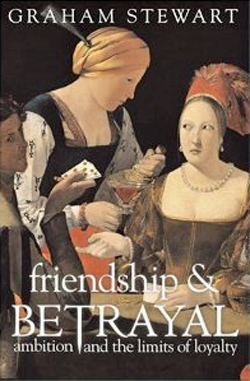
Drawing on a wide range of historical examples, Graham Stewart explores the intriguing question of whether friendship can survive the pressures of public life. He examines in detail three relationships from across centuries and nations to illustrate how people in power cope with the pleasures and pitfalls of friendship in public life. His first example, Courtiers, tells the story of Queen Anne and Sarah, Duchess of Marlborough, and shows how the introduction of a new ‘favourite’ can ensure a powerfully jealous reaction from the long standing friend who is displaced. His second example, Revolutionaries, relates the tale of one of the United States’ greatest Founding Fathers, Benjamin Franklin, and his relationship with his longest serving political partner, Joseph Galloway. Here were two ambitious men whose friendship was broken in bitterness by divided loyalties during the American War of Independence. The third example, Liberals, brings us back to Britain and the friendship between Herbert Henry Asquith and his best friend Richard Burdon Haldane. Their relationship helped ensure that one became Prime Minister and the other Lord Chancellor, but as Stewart sums up ‘with success came harsh political necessities, and only one of them was marked out to pay the sacrifice.’ Indeed it is Stewart’s view that ‘great leaders usually find that when they reach the summit they are alone.’ We see how single-mindedness, indeed selfishness, appears a necessary quality in the scramble for preferment and how friendship can so quickly turn into rivalry. Incisive and thought-provoking, Friendship & Betrayal is a fascinating examination of an age old dilemma that continues to animate public life today.
Posted on October 18, 2008 by The Orwell Prize -
The Orwell Prize for Journalism 2008 was awarded to Johann Hari, but returned on 14 September 2011.
Posted on October 18, 2008 by The Orwell Prize -

Rudyard Kipling was born in Bombay in 1865 and spent his early years there, before being sent, aged six, to England, a desperately unhappy experience. Charles Allen’s great-grandfather brought the sixteen-year-old Kipling out to Lahore to work on The Civil and Military Gazette with the words ‘Kipling will do’, and thus set young Rudyard on his literary course. And so it was that at the start of the cold weather of 1882 he stepped ashore at Bombay on 18 October 1882 – ‘a prince entering his kingdom’. He stayed for seven years during which he wrote the work that established him as a popular and critical, sometimes controversial, success. Charles Allen has written a brilliant account of those years – of an Indian childhood and coming of age, of abandonment in England, of family and Empire. He traces the Indian experiences of Kipling’s parents, Lockwood and Alice and reveals what kind of culture the young writer was born into and then returned to when still a teenager. It is a work of fantastic sympathy for a man – though not blind to Kipling’s failings – and the country he loved.
Posted on October 18, 2008 by The Orwell Prize -

Paul Vallely writes on social, ethical and religious issues. He is a former executive editor of the Independent on Sunday and of The Sunday Times News Review. He has previously reported from over 30 countries and was the Africa correspondent for The Times. He has written a number of books including Bad Samaritans: First World Ethics and Third World Debt and Promised Lands, a study of land reform in the Philippines, Brazil and Eritrea. He is the editor of The New Politics: Catholic Social Teaching for the 21st Century and A Place of Redemption: a Christian approach to punishment and prison.
Submitted articles
Other links
Posted on October 18, 2008 by Eric Blair -
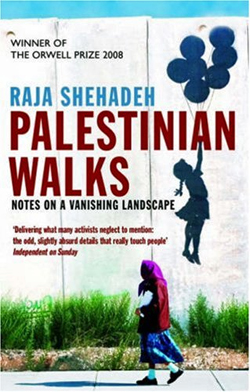
Palestine is a land of biblical beauty – of olive groves, grapevines, stone buildings, rolling hills, wadis and cliffs. It is also a land of violence and war. Human rights lawyer and writer Raja Shehadeh has lived on the West Bank since his family fled Jaffa in 1948. A peace activist of independent temper, he has seen at first hand the horrors of occupation – including the siege of Ramallah. For decades Raja has found comfort in walking, following what in Arab culture is called sarha – meaning to roam freely, at will, without restraint: to go where the spirit takes you.
In Palestinian Walks he invites the reader to come along for the unique experience of a sarha in Palestine. The six walks that comprise the book span a period of twenty six years evoking the land, its history and some of Palestinian’s political struggles, disappointments and hope. Palestinian Walks describes a vanishing landscape. Raja takes us to beautiful hills, past rivers and sacred springs, to famous landmarks from A’yn Qenya, the Shukba Caves, from Wadi Qelt to the Dead Sea (now receding by a metre every year thanks to Israel’s diversion of the river Jordan, an environmental catastrophe in the making).
We take a walk with Selma Hasan, a PLO functionary from Tunis, who returned after the Oslo Accords (a settlement that undermined decades of Raja’s legal work on land rights). And we experience the everyday humiliations and harassment by Israeli soldiers – including a chance meeting with a settler who lives next to Raja’s hometown. But there are also moments of extraordinary beauty:
To my left at the perfectly still waters of the [Dead] Sea, transformed by the sun into a luminous platinum sheet, and to my right at the formidable wall of incandescent rock along which we were travelling, towering steeply, challengingly, seemingly an impenetrable line of defence, a mighty gateway into another world.
Palestinian Walks shows how Raja’s life, and the fate of the landscape are utterly intertwined. It is an intensely personal account of life in one of the world’s most troubled regions, and a poignant story of how a pleasure so many of us take for granted – the freedom to roam through the countryside – is being destroyed.
Posted on October 18, 2008 by The Orwell Prize -

Longlisted for work published by the New Statesman. Martin Bright began his journalistic career writing in very simple English for a magazine aimed at French school children. This experience has informed his style ever since. He worked for the BBC World Service, and The Guardian before joining The Observer as Education Correspondent. He went on to become Home Affairs Editor before becoming the New Statesman’s political editor in 2005. He left the New Statesman in January 2009, and started blogging on Spectator.co.uk. He was appointed political editor of the Jewish Chronicle in August 2009.
Submitted articles
Other links
Posted on October 18, 2008 by The Orwell Prize -

Alec Russell is the commentand anlysis editor of the Financial Times, having previously been world news editor. He started his career as a journalist in Romania in the aftermath of the December 1989 revolution. He was in Bosnia and Croatia during the war from 1991 to 1993 and then spent five years based in South Africa as the Daily Telegraph’s correspondent. He then became the paper’s foreign editor for the Iraq War. In 2007 he returned to South Africa for the Financial Times for a second stint. Alec has written three books: Prejudice and Plum Brandy, about his time in the Balkans; Big Men, Little Men, a reflection on his time in South Africa in the mid 90s; and After Mandela, about South Africa under Mbeki. His writing has won several awards and his dispatches from southern Africa have earned him nominations for the 2008 Pulitzer Prize and for British foreign correspondent of the year.
Submitted articles
- Softly, softly: Mbeki seeks ways to limit chaos to the north and tensions within
- No end in sight Zimbabwe groans amid shortages and spiralling inflation
- A long journey
- Fenced in: Why land reform in South Africa is losing its pace
- The new colonialists
- The left-leaning Zulu
Other links
Posted on October 18, 2008 by The Orwell Prize -

Tim Phillips’ book tells the human story of the siege – of the terrible toll that thirst, hunger and sleeplessness took on the hostages, of the bravery of those who dealt with the terrorists, such as the elderly headmistress of the school and the doctor who tried to relieve the suffering of the young children. Phillips also looks at the authorities’ response to the siege and finds it severely wanting. He has spent time in Beslan researching the book, talking to those involved and those affected, listening to the conspiracy theories, and trying to set the events of September 2004 in their wider context of centuries of conflict and enmity in the Caucasus.
Posted on October 18, 2008 by The Orwell Prize -
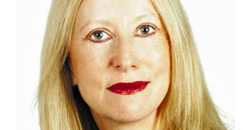
Mary Riddell is an assistant editor of the Daily Telegraph, where she is a columnist and political interviewer. A former deputy editor of Today, she has written for a number of national newspapers, including The Observer, on social, constitutional and foreign affairs, as well as covering criminal justice and Westminster politics. Her writing awards include Interviewer of the Year in the British Press Awards and a commendation in the feature-writing category. She has twice been named legal journalist of the year by the Bar Council and has previously been shortlisted for the Orwell Prize for Journalism (2008).
Submitted articles
Other links
Posted on October 19, 2007 by The Orwell Prize -
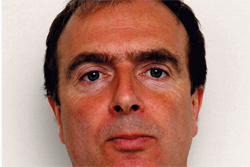
Peter Hitchens is a columnist and reporter for the Mail on Sunday, having previously reported from Moscow and Washington for the Daily Express. He has contributed to other publications, such as Prospect and The Guardian, authored documentaries on Channel 4 and the BBC, and appeared elsewhere on radio and television. Peter has also written a number of books, including The Rage Against God, The Cameron Delusion, The Broken Compass, The Abolition of Britain, The Abolition of Liberty and A Brief History of Crime.
Posted on October 19, 2007 by The Orwell Prize -

Peter Beaumont is foreign affairs editor at The Observer. He has reported extensively from conflict zones including Africa, the Balkans and the Middle East, and has written widely on human rights issues and the impact of conflict on civilians. He is the author of The Secret Life of War: Journeys Through Modern Conflict.
Submitted articles (incomplete)
Other links
Posted on October 19, 2007 by The Orwell Prize -

Longlisted for work published by the New Statesman. Martin Bright began his journalistic career writing in very simple English for a magazine aimed at French school children. This experience has informed his style ever since. He worked for the BBC World Service, and The Guardian before joining The Observer as Education Correspondent. He went on to become Home Affairs Editor before becoming the New Statesman’s political editor in 2005. He left the New Statesman in January 2009, and started blogging on Spectator.co.uk. He was appointed political editor of the Jewish Chronicle in August 2009.
Posted on October 19, 2007 by The Orwell Prize -
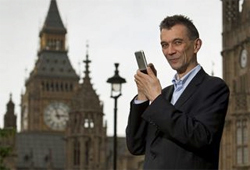
John Rentoul is chief political commentator for The Independent on Sunday, and visiting fellow at Queen Mary, University of London, where he teaches contemporary history. Previously he was chief leader writer for The Independent. He has written a biography of Tony Blair, whom he admired more at the end of his time in office than he did at the beginning.
Posted on October 19, 2007 by The Orwell Prize -
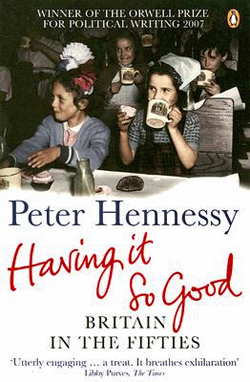
Having It So Good evokes Britain emerging from the shadow of war and the privations of austerity and rationing into growing affluence. Peter Hennessy takes his readers into the front-rooms where the Coronation was watched on television, to the classrooms and now coffee bars of 1950s Britain – and also into the secret Cabinet rooms in which decisions about the British nuclear bomb were taken and plans made for the catastrophe of nuclear war. He brings to life the ageing Churchill, in his last faltering spell as Prime Minister, the highly-strung Anthony Eden taking his country to war in the teeth of American opposition and world opinion, and the rise of ‘Supermac’ Harold Macmillan, gliding over problems with his Edwardian insouciance.
Above all, Having It So Good captures the smell and the flavour of an extraordinary decade in which affluence and anxiety combined to produce their own winds of change.
The judges said:
A marvellous history which seamlessly places high, intimate political history of the 50s, nuclear planning, Suez, and its characters in the context of British holidays and ice-cream. It re-invents history, all exuberantly done in Peter’s inimitable voice.
Posted on October 19, 2006 by The Orwell Prize -

Timothy Garton Ash is the author of nine books of political writing or ‘history of the present’ which have charted the transformation of Europe over the last quarter-century. He is Professor of European Studies in the University of Oxford, Isaiah Berlin Professorial Fellow at St Antony’s College, Oxford, and a Senior Fellow at the Hoover Institution, Stanford University. His essays appear regularly in the New York Review of Books and he writes a weekly column in The Guardian which is widely syndicated in Europe, Asia and the Americas.
Other links
Posted on October 19, 2006 by The Orwell Prize -

Oliver Burkeman is a features writer for G2.
Posted on October 19, 2006 by The Orwell Prize -
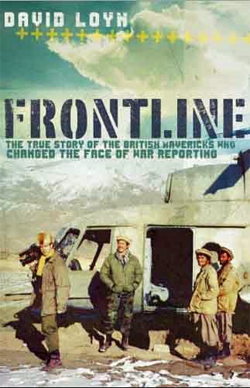
Rory Peck, Peter Jouvenal, Vaughan Smith, and Nicholas Della Casa were the founder members of an exclusive and dangerous club: the Frontline TV News Agency. Between them, this colourful collection of adventurers and ex-army officers captured some of the key images at the end of the Cold War, and the fractured, fissile world which emerged. Two of them are now dead: killed in action. The way they lived and died was an anachronism; they were eccentrics who might have been happier fighting wars in the British Empire a century before. Instead, they brought back pictures from the worst war zones the late twentieth century had to offer. And it suited them. For the men of Frontline, how things were done was as important as what was done. All four of the founders, and those they recruited, shared the same panache, wit, and disdain for authority, planning the next trip to the Hindu Kush in the bar of the Ritz. Their story reads like a latter-day Rudyard Kipling adventure. But while their lives may have been lived as if they were still playing the Great Game, they also cared passionately about their work and the truth it conveyed. Part Bang Bang Club, part Flashman, Frontline is the gripping story of lives lived to the full in some of the worst places on earth.














